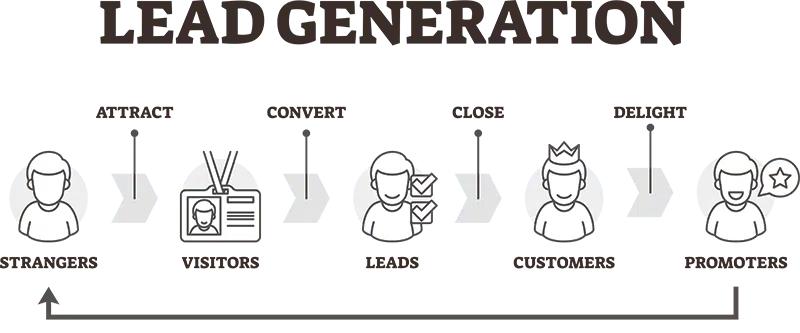
Finding trucking contracts on your first day is difficult, but it’s not impossible. If you are thinking about starting your own fleet or becoming an owner operator, there are skills that you need to develop to help you increase the odds of receiving long term contracts from reputable shippers. In this article, we will discuss where to start looking for your first contract as well as how to talk to shippers to increase your network for long term success.
Communicating with Shippers
Are you outgoing and charismatic? Have you been told that you are easy to talk to and mesh well with multiple personality groups? Then cold calling and networking shippers will be easier for you. Sure, you can use load boards and dispatchers to help boost you in the beginning, but those methods will only get temporary contracts. You need contracts that are long term. Knowing how to handle the conversation with a prospect is what separates a successful trucking business from an unsuccessful one. Drivers that know this industry will tell you that no method is guaranteed to work all the time, which is why everyone recommends doing all of them simultaneously and consistently, but cold calling and visiting prospects in person is the only sure-fire way to get your name visible to the shippers that matter.
Where to Find Shippers to Contact
The freight industry is currently dealing with a labor shortage, which means it is an opportune time to work on your networking skills and build relationships. Use directories to find contact information for potential shippers like macraesbluebook. MacRAE’s sorts through all manufacturing and industrial businesses by product or by company name. Start by Google searching which companies are in your desired area and then search MacRAE’s for their contact information if its not readily available in your results.

Once you find the contact information for your future customer, you must do research to learn as much as you can about them before the initial phone conversation or in person visit. Look at their website, social media, and forums (if available). Learn about them, what they ship, and which locations they cover. Use social media profiles like Linkedin to see the hierarchy within their organization. Choose the person under the employee’s tab that makes the decision for new freight contracts. The title is usually “Shipping manager” or “Logistics Manager.” This person should be your main point of contact during the introduction phase of your phone calls.
Additional Tip: Be sure to search job sites like Indeed for shipping contracts. Not a lot of people realize that these jobs can be posted here as well!
The Process for Calling Shippers
Before you start calling you will need to create what is called an “elevator pitch.” This can be a short but sweet information dump about yourself, your values, and your company. Be sure to mention what products you can ship, what days and times you’re available, etc. If you want to grab contracts, you’re going to have to be available at the worst times. If a shipper notices you are always punctual, responsible, and trustworthy, then you have a better chance of receiving a long-term shipping contract.
Introduction Call
With the initial call, you should focus on learning as much as you can about the person on the other end of the line. Consider this an introductory call. You want to be friendly with the person, but also professional. Learn about them just as much as you tell them about yourself, your company, and your track record. If you learn anything personal about them, take notes. Note taking during your call will help you for the follow up phone conversation as well as make you sound more personable and caring.
Follow Up Call vs In Person Visit
Once the initial call is made and you are familiar with who answers the phones at the freight company in question, you can now build further rapport with a follow up call. Usually, you can wait a week from the introductory call so you are not becoming a nuisance. There is a fine line to walk because you want to be visible to the shipping manager without wasting their valuable time.
We recommend that you visit these locations in person if you can. Putting a face to the name will help shippers trust you. Plus, it’s a lot harder to hang up on someone when you meet them face to face. Collect business cards from the shipping or logistics decision maker and prepare to hand out your own business cards. We recommend bringing snacks of some sort to pass out to the employees when you are there. It’s easy to turn down someone who is soliciting for your business, but not when they have donuts.
The Hard Truth about Calling Prospects
Continuing to contact these shipping and logistics managers is a necessity for success. Sometimes you may call a business for months without gaining a long-term shipping contract. This is the point when most business owners fail because they lack the tenacity to continue calling the same shipping managers. You will get discouraged (everyone does) with the amount of negativity that comes with cold calling freight companies. Don’t let that stop you from dialing! Cold calling is a numbers game and the more you do it, the more success you will have. Treat every “no” that you hear as a “not right now” instead of giving up completely. On the other hand, if you have a prospect that is audibly aggressive or annoyed with you then you shouldn’t call them back for at least 30 days. Use your best judgement based on their tone of voice.
Customer Relationship Management
When you are prospecting for long term trucking contracts, you will talk to a lot of people. The only way to properly manage this network is to download a decent CRM software. CRM stands for Customer Relationship Management. Basically, it’s a large digital cheat sheet of all the information you gained from each of your conversations with prospective shippers.

Keep track of your calls and how many people you talk to. Use a CRM software to keep track of everyone you have contacted as well as their personal information. Use notes to help keep the relationship strong within that organization. Does the shipping manager have children? What are their names? Do they have hobbies similar to yours? Build rapport by contacting the same people once or twice every two weeks just to keep your name floating around in their head. If you sense it’s not a good time to contact your person of interest, then don’t. You want to give the perception that you are available, but not oblivious to other people’s time
Scripts to Gain Long Term Shipping Contracts Today
The following scripts are useful to get you started and keep you on track during a call with new shippers. There are no guarantees that using this script will get you more contracts, but it’s good practice to use a script in the beginning so you don’t get flustered and sound unprofessional during your conversation. Most of your calls will start at the “gatekeeper.” We call them that because they are the people that determine whether you get to the decision maker.
Gatekeeper: Thank you for calling Acme Freight, This is Angela, how can I direct your call?
You: Hi Angela, my name is ________ and I was calling to get in touch with (Shipping/logistics manager). (You should know their name from your research before this conversation)
Gatekeeper: “May I ask what this is regarding?”
You: “I was told that he/she was the person to talk to about a shipment.”
Gatekeeper: “One moment please, ill transfer you”
(On hold until shipping picks up)
Shipping: “This is Sam, can I help you?”
You: “Hi Sam, this is ________ and I was calling to see if you needed any extra help with shipments today?”
Shipping: “ummm, I don’t think so, we have everything handled, what company are you with?”
You: “I own my own business called _________. I wanted to touch base with you guys and introduce myself”
Shipping: “Ok, well we don’t have anything at the moment, but I can put you on the list if anything changes”
You: “Sounds good Sam, I can call back next week to see if anything has changed.”
It may seem like this phone conversation was a waste of time, but in fact it wasn’t. You now know exactly who the decision maker is for that company, and the fact that they have a list of people like you trying to get more shipments. Use your CRM software to put these details in the notes for the next conversation you have with the prospect. Set reminders for yourself to call back a week later. Except this time Sam will remember you and the conversation will be a little easier. What separates a successful phone conversation from an unsuccessful one is building a relationship with the person on the other end of the line. Let’s take a look at a different example.
Shipping: “This is Sam, can I help you?”
You: “Hi Sam, this is _______ and I was calling to see if you needed any extra help with shipments today?”
Shipping: “We aren’t accepting any new drivers.”
You: “I’m sorry to hear that Sam, why not?”
(Never be afraid to ask why if your prospect declines your services! Their response could give you the information you need for next time.)
Shipping: “Because we have a strong vetting process for our drivers, they need to be background checked, certified, drug tested, bonded, insured and registered before we will even look at them.”
You: “Good news, Sam, I have those documents ready to send you in an email right now.”
Shipping: “Well, we aren’t looking for any extra help at the moment, but you can sign up on our website portal and apply there.”
You: “I’ll be sure to do that Sam, thanks for your time, Ill talk with you soon.”
____________________________________________________________________________
Now let’s dive into a scenario where you are calling a prospect that you talked with at a previous date.
Gatekeeper: “Acme Freight, this is Angela, how may I direct your call?”
You: “Hey Angela, it’s ___________, how are you doing today?”
Gatekeeper: “Hey ________, I have no complaints”
You: “You know it’s a good day when you have no complaints!”
Gatekeeper: *chuckles* “yep, it sure is, are you trying to speak to Sam?”
You: “Yes”
Gatekeeper: “Hold on ill transfer you”
You: “Thanks”
Shipping: “This is Sam”
You: “Hey Sam, _________ calling to check in, how are things going down there?”
Shipping: “Hey, _________, you know, just grinding it out day by day”
You: “Anything opening up in the near future for me to squeeze my way in?”
Shipping: “Sorry, ________, not yet, but if John keeps being late with these shipments there will be soon”
You: “Well, you know our punctuality with our shipments has a great track record. Ill be glad to take that lane if it becomes available. Sam, I meant to ask you, are you free for lunch anytime this week or next week?”
Shipping: “I am pretty booked this week, but I can check my schedule for next week”
You: “Great, I’m buying. There’s a burger joint called ______ close to you, How about we meet Monday at noon?”
Shipping: “That should be fine, if my schedule allows it.”
You: “Sounds good, Sam, It will be good to add a face to the name. I’ll talk with you soon”
You should automatically assume Sam wants to go to lunch and send him a calendar invite for the date you specified. Yes, you buy the lunch. Small price to pay for visibility.
____________________________________________________________________________
The first two scripts focused on information gathering stage of the conversation. The third script located directly above is focused on setting a meeting in person with the decision maker. Don’t make the mistake of focusing on the wrong topic during these conversations. Make it simple, quick, and effective. Have a goal set in mind for every call and you will find it easier to steer the conversation into getting what you want. In this case, a sit down with the person that will give you a long term shipping contract.
Competing with Large Companies for the Same Shippers
When you decide to start networking and prospecting for your business, it’s good practice to target a space that the larger firms aren’t competing. Save yourself time by focusing on the smaller fish in the ocean until your reputation builds large enough to bring in a whale. Plus, the more calls you make to smaller companies, the more practice you will get for the larger companies. By then, you will be an expert in communicating properly with decision makers. You will also know all the questions they are going to ask because you have heard it 100 times and words will flow naturally when you speak to bigger shipping managers.

Comments are closed